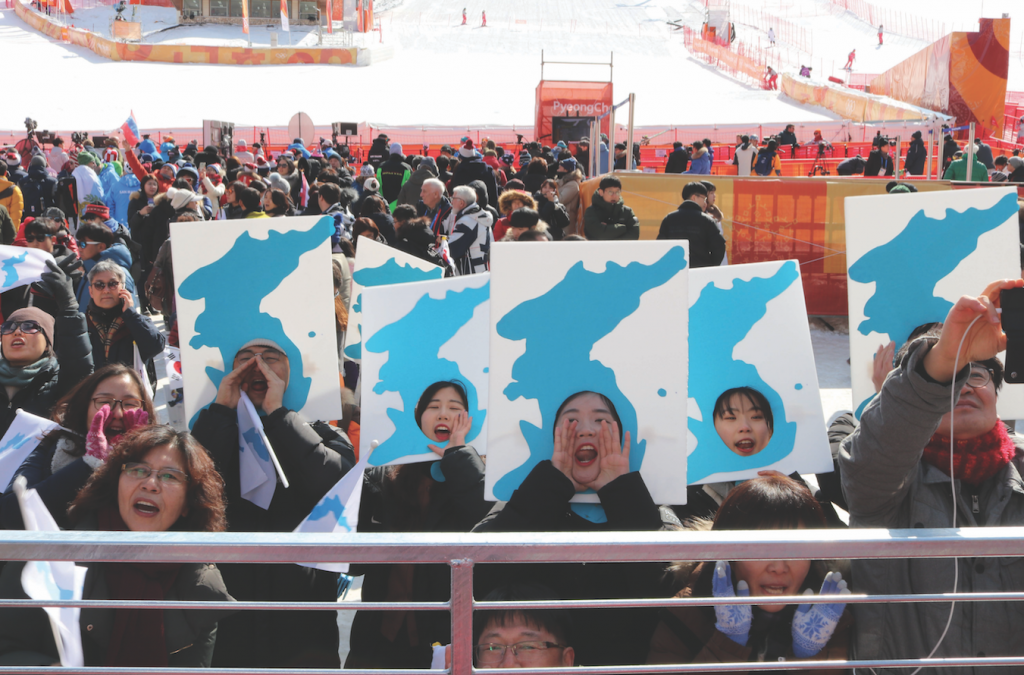With only a matter of days until the long awaited PyeongChang Olympics, preparations are sweeping South Korea as the nation gets ready to host the world. For all the pride Koreans feel, however, in the months before the Olympics, I couldn’t help but be wary of our northern neighbors who have, among other things indulged in activities that threaten our very existence. Seeking to alleviate decades of hostility, North and South Korea recently took a giant step forward in ameliorating decades of hostility by choosing to combine their women’s ice hockey teams under a unified flag in the coming Olympics.
The two Koreas cannot stay separated forever and steps toward reunification should be made slowly, especially if it means putting an end to the horrors that take place under Kim Jong Un’s terrifying regime. But while this step toward reunification seems great in principle, it has clear logistical tangles–some more painful than others.
Unfortunately, hockey pucks can’t dismantle nuclear missiles or feed multitudes of malnourished children. While Korean athletes skate on the ice under one flag, just miles away poverty and oppression will still run rampant. Once the show ends and the curtain falls, life will continue in unchanged, opposite directions in the North and the South. Especially with the recent nuclear threats, suddenly holding hands with them as one peaceful tribe seems to reward destructive behavior. What’s more, if any nuclear tests occur in the weeks following the Olympics or even during them, we will have fooled ourselves by claiming we were “one” with the North.
The unfortunate truth is that this wasn’t a democratic decision. South Korean players were not consulted nor was there a majority from both nations who agreed to playing together. Instead, this was an autocratic move from high government officials who used the athletes as pawns in their political chess game.
The people hurt most by this change are the South Korean women’s ice hockey athletes who have trained for much of their lives for this moment, only to be denied the chance to compete and display their hard work and talent to the world. Although the two nations will combine teams, the number of athletes who can actually suit-up will remain at 22 and at least three North Korean players must be included, which will inevitably cut some South Korean athletes from the roster and at best, reduce the playing times of others. The Olympics is a showcase for the athletes who have worked hardest for the ultimate honor of representing their country as the best of the best–but this merit-based system was cast aside as political plays came before rewarding those athletes who deserve it most. Under the gaze of the world, we are displaying an uncomfortable and complicit injustice, and tampering with the spirit of the Olympic Games.
In addition to being unjust, this decision carries sexist undertones. Why was the women’s ice hockey team selected while the men’s team was not even considered in this so-called “unification” effort? Women in sports face levels of inequity that their male counterparts do not. Just two years ago in the 2016 Rio Olympics, husbands got credit for their wives’ Olympic wins, chatter on athletes’ makeup and dress preceded discussion on their athletic prowess, and the achievements of female athletes were downplayed behind those of their male counterparts. Clearly, in PyeongChang, not much has changed. Last week, South Korea’s prime minister Lee Nak-yeon made an effort to justify the integration by saying the women’s team was not a medal contender anyway, further perpetuating the idea that women’s sports are not as important or impressive. As the host nation, this is embarrassing and discriminatory at best.
All of this aside, and from a purely practical standpoint, this plan still fails. Ice hockey is a team sport, with athletes training together for years to achieve an indescribable synergy. With just days left until the games, even if the North Koreans were the best hockey players in the world, it would not make sense to trigger this sudden switch.
The unified team may be a step forward to ease political tensions, but at what cost? While the team may break down a few bricks in the looming wall that stands between the two Koreas, injustice and sexism lurk in the shadows, peering back at the world that stands watching our every move.

